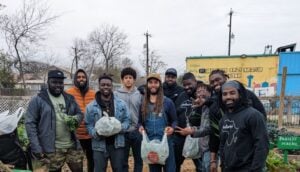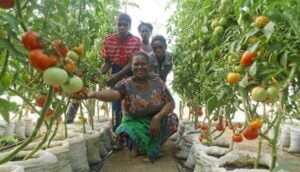Youth unemployment in developing countries is a pressing problem – youth face multiple constraints that affect both their decision to enter the labor force and their access to employment. And the Covid-19 has further exacerbated these issues. According to the World Bank youth and women are particularly negaitively impacted by the effects of the pandemic. Though many organizations are trying to tackle these challenges, they are too large for any single organization to solve alone. Thus, many organizations fail to design youth employment programs that are effective, sustainable and scalable.
Solutions for Youth Employment (S4YE), a global partnership led by the World Bank has two strategic priorities of scaling innovation and knowledge sharing. It aims to bring in cutting-edge and transformative solutions developed through context-specific partnerships to address youth unemployment. It also strives to facilitate knowledge sharing to generate new evidence on effective youth employment program design and implementation, working with partners to scale program impact, and influencing policy dialogue
S4YE recently launched a new digital resource, the S4YE Knowledge Repository, to to provide easy access to practical tools and resources on youth employment.
The Knowledge Repository, has more than 300 practical toolkits, tookits, reports and videos. The repository provides a global one stop shop to help practitioners design, implement, and scale youth employment programs.
Practitioners can learn about new innovative youth employment projects and identify potential partners for collaboration by browsing through thematic categories, such as diagnostics, training & skills or private sector engagement. And sector- and target group -specific categories allow for a direct access to a catalogue of tools for green economy, digital economy, agriculture, women, or youth with disabilities, among others.
Youth employment programs must address multiple challenges faced by the youth themselves (supply side) as well as by current and future employers (demand side). On the supply side, youth struggle with low level of skills and skills mismatch, lack of information about existing job opportunities and a lack of experience that would allow them to get employed. On the demand side, companies struggle with a limited access to infrastructure, access to finance, global markets, and face regulatory constraints, among others. The tools featured in the Knowledge Repository tackle both sides of the problem.
| Digital Skills Assessment Guidebook | Designing Programs for Young Women Refugees | Promoting Partnerships to Employ People with Disabilities |
| The ITU Guidebook is a practical step-by-step tool for national digital skills assessments. It can serve to determine the existing supply of a digitally skilled cohort at a national level, assess industry demand for skills, spot skills gaps, and develop targeted skills development policies and programs. It is useful for policy-makers and partners in the private sector, non-governmental organizations, and academia. | The S4YE and Rand note on Addressing Employment Obstacles For Young Syrian Refugee Women, among other things, addresses initiatives to break down barriers that Syrian refugee women face in securing work, such as legal restrictions, language and travel barriers, and poor match between skills and labor market needs, gender wage discrimination, sexual harassment, and cultural barriers. It can serve as a blueprint for the practitioners designing employment programs for women refugees elsewhere. | The report provides practical information and lessons learned on how multinational corporations can fully include people with disabilities into the workplace. It offers six steps for companies to follow to ensure they’re inclusive, and depicts examples of how companies and NGOs can collaborate and businesses can hire and retain employees with disabilities. |
| Building sustainable agriculture value chains | Training in using online job networking platforms |
| The Working with Smallholders handbook, created by the IFC, and intended for the operational managers in agribusiness companies, explores new developments in building sustainable value chains, and best practices in working with smallholders. It presents tools and strategies to help firms incorporate results measurement into their smallholder engagement strategies. | The paper Linkedin(to) Job Opportunities: Experimental Evidence from Job Readiness Training presents early results from the first randomized evaluation of training of job-seekers in using online professional networking platforms. It demonstrated an increased employment rates from at the end of the raining program among young work-seekers. The learnings can be usefuls while providing re-skilling/ training programs for youth. |
As a global partnership dedicated to increasing the number of young people engaged in productive work, S4YE hopes that the Knowledge Repository will support practitioners with a vast variety of practical tools to support the design of effective programs. Together, we can scale impactful solutions for youth employment.
The S4YE Knowledge Repository is regularly updated with new tools and resources. If you have recently developed a tool or released a report that would be useful for a youth employment practitioner – contact: ss******@wo*******.org.










